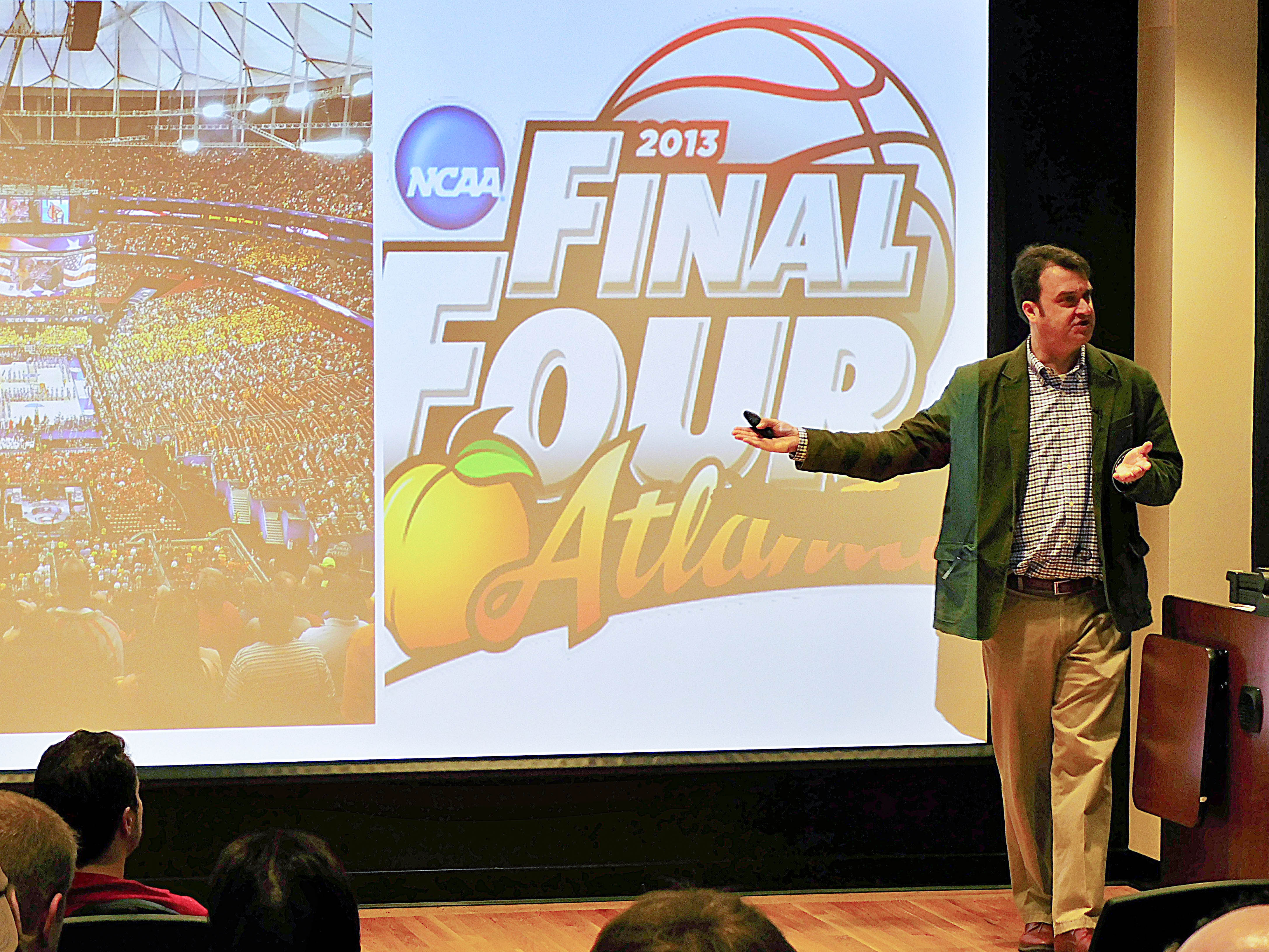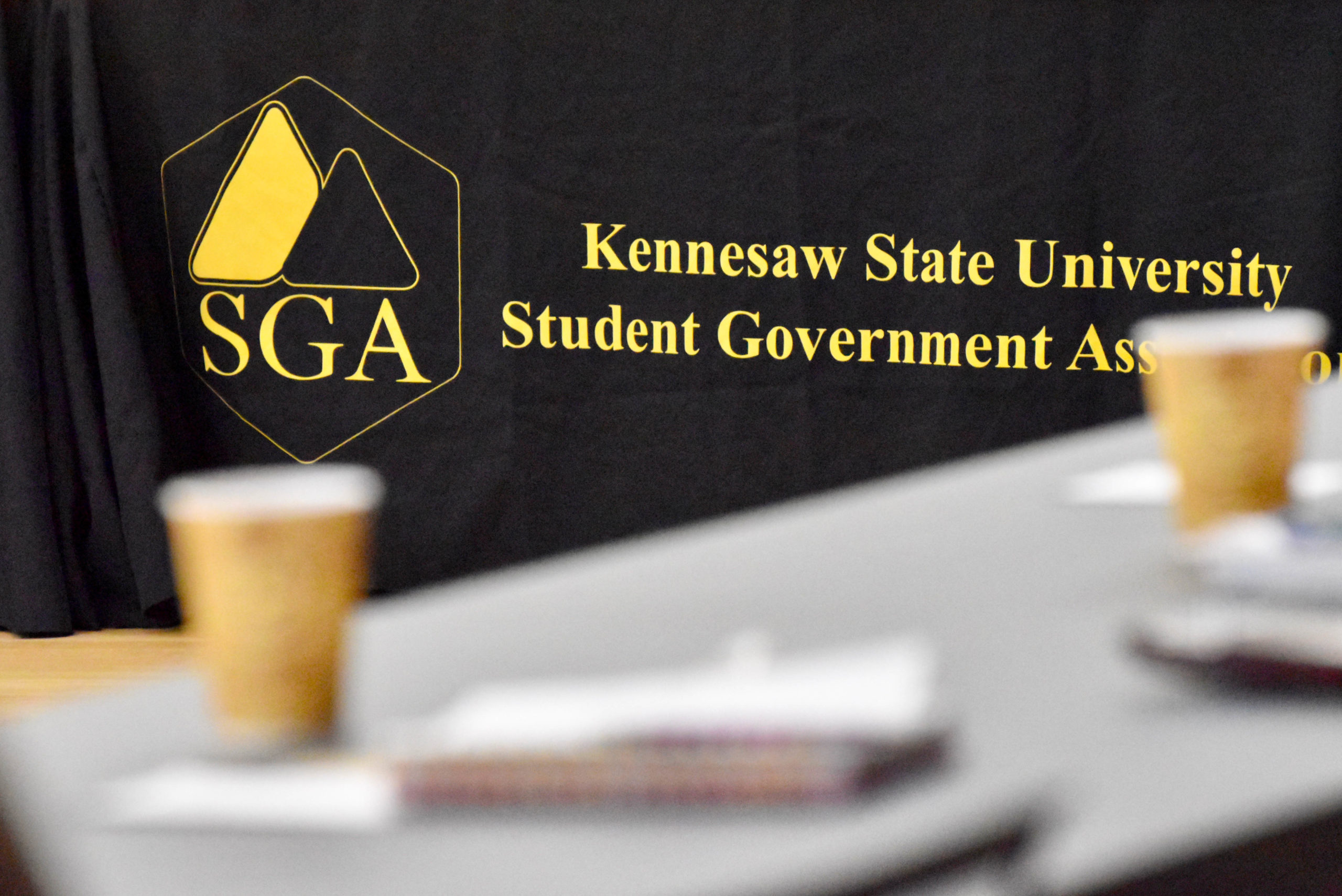This article has been updated since its original publication.
Economics professors from colleges and universities from across the U.S. gathered at a symposium hosted in Kennesaw State’s Burruss Building on Friday, Jan. 25, to discuss the financial impacts of Atlanta hosting the Super Bowl.
The panel, hosted by the Bagwell Center for the Study of Markets and Economic Opportunity, included economics professors from Kennesaw State, Berry College, the College of Holy Cross and the University of North Carolina-Charlotte who all have experience studying the economic impact of sports.
Panelists expressed concern that Atlanta hosting the Super Bowl will not bring as many financial benefits as previously believed.
The symposium covered topics such as Atlanta’s Super Bowl preparation, how the Super Bowl affects local economies, what business the Super Bowl brings to hotels and how mega-events impact tax revenues.
One of the speakers and organizers behind the event was Dr. J.C. Bradbury, a professor of economics and finance at KSU.
In his presentation, Bradbury spoke about how the Mercedes-Benz Stadium emerged as a multi-million dollar home for the Atlanta Falcons. Before it was demolished, the Falcons had previously competed at the Georgia Dome.
The Georgia Dome hosted Super Bowls XXVIII and XXXIV for the 1993 and 1999 NFL seasons. The Mercedes-Benz Stadium opened in 2017, 25 years after the Georgia Dome opened its own doors.
“Why did Atlanta need a new building right next door to a similar building that was opened just 25 years ago,” Bradbury questioned. “One of the stated benefits was attracting a Super Bowl.”
Atlanta hosting this year’s Super Bowl is reported to have an economic impact of $400 million. Despite this, Bradbury states that “the economic benefits are much smaller than often claimed,” and that the returns do not appear to justify the millions of dollars in subsidies that local governments pay to attract the event.
Bradbury said that Atlanta is contributing approximately $700 million in taxpayer money to fund the newer stadium and another $26 million to fund the city’s bid to host the game. Bradbury said that he does not think that the investment the city has put into the event is entirely justified, and he feels that the financial returns do not match the investment.
Victor Matheson, economics and accounting professor from the College of Holy Cross, Lauren Heller, associate professor of economics from Berry College, Frank Stephenson, chair of the department of economics from Berry College, and Craig Depken, director of the economics program from the University of North Carolina-Charlotte, also spoke at the event.
Super Bowl LIII will be held on Sunday, Feb. 3. The New England Patriots will compete against the Los Angeles Rams for the Lombardi Trophy in the Mercedes-Benz Stadium in downtown Atlanta.
Sabrina Kerns contributed to this article.



